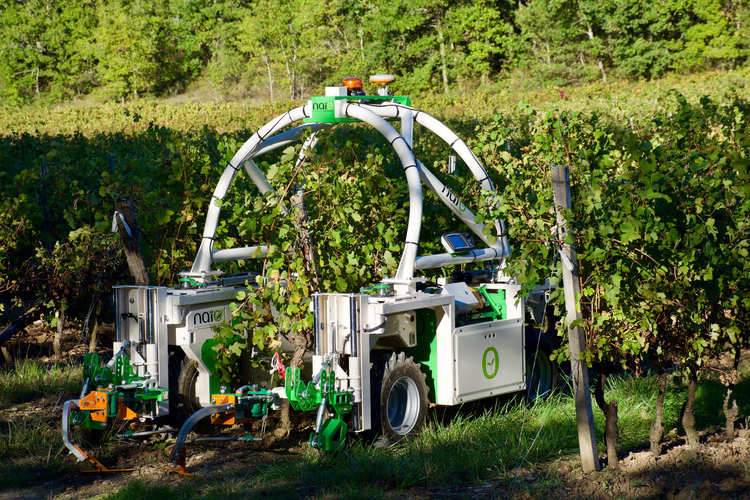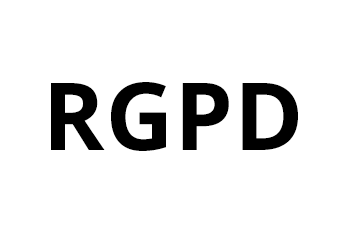HOW OUR VINEYARD BECAME KNOWN AS ‘LE DEMI-BŒUF’ ?
In the midst of the Vendée Wars, which were being waged in the fields alongside the river Logne, a group of Royalist soldiers decided to take advantage of the local people’s welcome to stop and enjoy a meal of roast beef. They were slicing it and about to share it when, suddenly, they were warned that Republican troops were approaching. With regret, they had to leave about half of their feast behind in order to disperse themselves in the surrounding countryside.
This unintentional gift to the enemy of a ‘demi-boeuf’ or half a beef is behind the name of our vineyard’s location and some of our wines.
FROM FATHER TO SON…
1954
Marcel Malidain started the farm in 1954 with four hectares of vines, various other crops and some cattle for breeding. In 1974, his son Michel joined him and decided to focus exclusively on winegrowing.
1974
2006
In 2006, Romain Malidain took over the business after completing a diploma in viticulture and oenology, followed by a year studying business and marketing and a range of experiences abroad and in France.
2018
His brother Freddy joined the team in 2018, followed by their uncle Christophe, who had worked at the estate 20 years earlier.
Forming a trio has been a positive step forward for the vineyard. Each of the three partners has a clearly defined role in order to:
• Ensure constant quality in the vineyard and the wines,
• Maintain and develop customer relations, both at the winery and with domestic and international trade clients.
• Promote the vineyard and its wines at home and abroad.
OUR WINE ESTATE
Our 33-hectare vineyard in La Limouzinière has brown soil over amphibolite greenstone bedrock, which is average in terms of earliness.
In terms of varieties and appellations, the vineyard is divided as follows:
• AOP Muscadet Côtes de Grandlieu: 11 hectares of the Melon grape variety
• IGP Val de Loire and Vins de France: 22 hectares of Chardonnay, Sauvignon, Grolleau Noir, Cabernet Franc, Merlot Noir, Pinot Noir, Viognier and Muscat.
The 2018 vintage of our Muscadet Côtes de Grandlieu sur lie “Clos de la Clémencière” will be the last that we will market. Indeed, we decided to transfer this plot of 11 hectares of vineyards.
A strategic choice that will not only give us a more suitable surface for our work in vines, but also allows us to change course.
A project that has been an important issue to us for a few years: our domaine is being converted to organic farming. This conversion will take place in 3 stages. This year it concerns our Muscadet.
SOIL PREPARATION
The vines in our vineyard range from young vines up to vines of 50 years of age, with an average age of 20 years old.
We are working to eliminate chemical weedkillers in the coming years, in order to better respect nature and auxiliary wildlife.
We practice controlled natural grassing and work the soil mechanically at the level of the cavaillon using an autonomous robot, guided by GPS with interceps blades, and other soil surface tillage tools (discs, tines, kress fingers, hoes…); a precious and effective help to accomplish this soil maintenance.

WINERY PROCESSES
Firstly, we pick our grapes at optimum ripeness, then press them directly in membrane presses. The must is then settled for 48 hours at approximately 13°C to 15°C. This settling process allows us to retain only the clear must in order to make elegant and delicate wines.
Alcoholic fermentation can then begin. The yeasts transform the sugars in the grape juice into alcohol. This takes place during 15 to 18 days in vats with a constantly controlled temperature of between 17°C and 20°C. The aim of this fermentation technique is to produce wines that are expressive, elegant and balanced.
The maturation or ageing of our wines is mostly done in underground vats (which are particularly common in the Nantais wine region), stainless steel vats, oak barrels and, as of more recently, in egg-shaped vats(*).
All of our Muscadet Côtes de GrandLieu Sur Lie are aged for seven to 14 months on ‘lees’ (a deposit found in wine after fermentation, composed mainly of yeast). This is the ‘Sur Lie’ method of ageing that is specific to our winemaking region. The technique enhances the aromatic potential of our Muscadet and conserves the naturally produced CO2 from fermentation, thus giving the wines a slight spritz in the finish, which is very pleasant and fresh. Some of our wines, however, are kept on lees for longer periods – we have new wines of this kind coming soon!
(*) The egg-shaped vats are made of natural concrete which naturally allows micro oxygenation. The absence of metal reinforcements means that there is no interference with the ionic movement of the wine’s natural constituents. The egg shape generates a vortex movement which keeps the lees permanently in suspension. This results in wines that are rounder, more complex and more supple.
Finally, all our wines are bottled by an external service provider in accordance with HACCP (Hazard Analysis Critical Control Point) quality control procedures.
